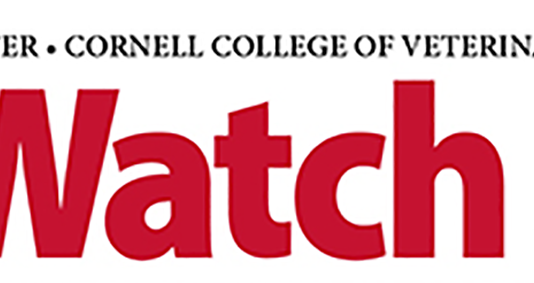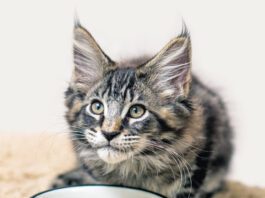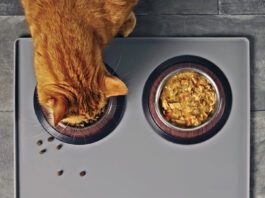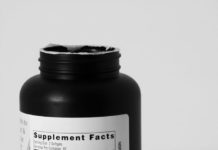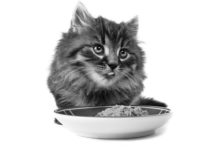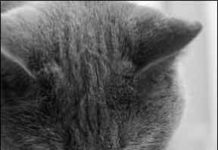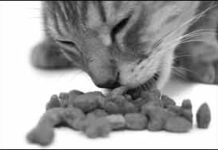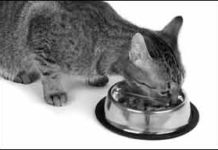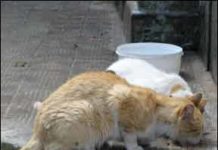A Promising Study of Fish Oil Fails to Test Cats Because of Their Size
A promising study about supplementing with deep-sea fish oil illustrates one of the challenges in conducting research on cats and why more research is done on dogs than cats.A study of 77 dogs with osteoarthritis found that, when compared to a placebo, The fish-oil treated patients improved significantly in many of the variables … indicating a true but small relief in symptoms. Those dogs had improved in quality of life in locomotion and everyday situations, according to the report published in BMC Veterinary Research in 2012. Supplementation could be considered part of a total pain-relieving approach, especially for dogs who do not tolerate anti-inflammatory drugs, the researchers said.
Looking Beyond the Ingredient Label
In our quest to eat healthy food, we often extend that enthusiasm to our cats. We evaluate their diets with the same scrupulous care we give our own, but commercial cat food can still remain somewhat of a mystery. We question if preservatives are safe. Should we avoid genetically modified ingredients? What about artificial coloring?
The Biggest Mistake in Giving Treats
Treats provide welcome rewards for good behavior, but their overly generous use can contribute to obesity. One reason is that owners don’t count treats as calories. “But the bigger problem is a multiple-person household in which every time someone walks by, they give the cat a treat,” says Joseph Wakshlag, DVM, Ph.D., Associate Professor of Nutrition at the Cornell University College of Veterinary Medicine.
In The News: Do beta blockers improve the lives of heart patients?
Beta blockers have proven effective in treating some people with hypertrophic cardiomyopathy, but their effectiveness in cats with asymptomatic HCM has not been established. However, researchers at North Carolina State University are now studying cats being treated with the beta-blocker atenolol to better determine if early medical therapy improves their quality of life.
Enhance Healing at Home or the Clinic
Don’t expect your cat to come to you with pleading eyes to book a veterinary appointment when he’s not feeling well. That’s because cats have a validated reputation for being both prey and predator. They’ll do their best not to let anyone know they’re injured or ailing. It’s a survival mindset.
Ask Elizabeth: September 2012
I work at a large no-kill animal sanctuary with special-needs cats. Often when one becomes ill and stops eating, we tempt him or her with people food like baby food or boiled chicken. I have heard a lot of conflicting things about feeding cats baby food or straight meat. Someone recently told me that a good all-meat baby food and straight chicken are nutritionally complete, but I have read in a few places that cats need other nutrients like taurine and vitamins A and D or they will get very sick. Does straight meat provide full nutrition for cats? In the wild, how do cats get full nutrition if meat does not provide it all? What is the best kind of food for our dear kitties?
The Future Basis For Diet Plans: Genetics
Nutritionist Joseph Wakshlag, DVM, Associate Professor of Clinical Nutrition at Cornell University College of Veterinary Medicine, poses a question for owners: “If you knew that your cat would develop cognitive dysfunction at age 12, and if feeding him an antioxidant-enhanced diet would delay that development, wouldn’t you do it?” That scenario may be possible in the not-too-distant future. If scientists identify a gene for feline cognitive dysfunction — and a host of other diseases with genetic risk factors — individualized nutrition and lifestyle plans could be developed for cats based on their genetic tests. It has long been known that nutrition plays an important role in preventing and healing disease in humans, cats and dogs, but its role may be greater than we thought. Researchers in the pioneering science of nutrigenomics stand squarely at the intersection of genetics and nutrition.
Short Takes: September 2012
Biologists at the Royal Veterinary College in London may have discovered the reason for the cheetah’s record as the fastest living land mammal. Researchers at the college’s Structure and Motion Laboratory compared the cheetah’s gait to that of racing Greyhounds, whose speed tops out at 37 miles per hour. The big cats have been clocked at 64 miles per hour. “Cheetahs and Greyhounds are known to use a rotary gallop [in which the limbs fall in circular sequence around the body] and physically they are remarkably similar, yet there is this bewitching difference in maximum speed,” says researcher Alan Wilson, Bsc., Ph.d.
Looking Beyond the Food Bowl
Bringing out the nutritional best in your cat goes beyond the food in the bowl. Frequency of meals, location, post-meal bowl cleaning and other environmental factors also influence his health. “One of the biggest problems is that far too many people overfeed their cats, and the cats become overweight and some even become obese,” says nutritionist Joseph Wakshlag, DVM, Ph.D., Associate Professor of Clinical Nutrition at Cornell University College of Veterinary Medicine. “Dogs give you those begging eyes when you sit down to eat, but in most cases, you can get them to go into another room and leave you alone.” They excel at begging. “Cats, however, are aggressive beggars. They will keep purring and meowing. If you tell them to go away, they will just come right back and start meowing again. They are more persistent than dogs and far too often, the person gets frustrated and will get up and put more food in their bowls.”
Short Takes: June 2012
Owners often bring their cats to the veterinarian due to a bout of constipation, which can have a variety of causes. Veterinary treatment includes determining and eliminating the cause, if possible, along with medical and sometimes surgical management. Medical therapy often includes the use of laxatives, enemas and prokinetic agents (like cisapride). Psyllium is a soluble fiber that produces a mucilaginous gel that helps to increase fecal bulk. It also adds to stool bulk by other water-holding properties. Psyllium has been found to increase stool frequency and consistency in humans with idiopathic constipation.
Are Prescription Diets Necessary?
Trying to adjust your cat’s diet because of a serious medical condition is undoubtedly a good idea. But experts insist that there is a right way and a wrong way to go about it. Some problems may respond readily to a dietary adjustment, while other problems can be more vexing and require treatment aside from nutritional changes.Firstly, remember that therapeutic diets do not cure diseases. They can alleviate clinical abnormalities on a temporary basis, and alleviating these abnormalities can certainly help our beloved pets feel better and give them a higher quality of life.
Short Takes: November 2011
Fish and flaxseed oil are excellent sources of n-3 polyunsaturated fatty acids (PUFA), and both have become popular dietary supplements. These fatty acids can modulate the immune response, and have been used to address canine skin conditions. However, the effects in cats have been relatively unknown. This study (“Dietary fish oil and flaxseed oil suppress inflammation and immunity in cats,” Veterinary Immunology and Immunopathology, 2011) investigates the responses in cats to fish or flaxseed oil.

